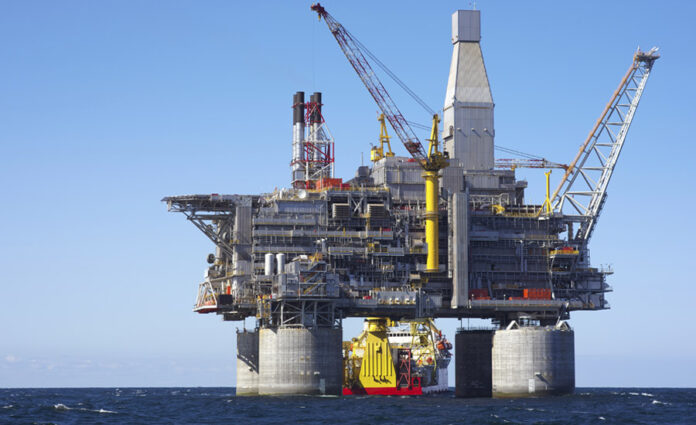LONDON: The Organization of the Petroleum Exporting Countries has trimmed its world oil demand growth forecast for 2021 while maintaining its 2022 view, its monthly report showed on Wednesday, but it said surging natural gas prices could boost demand for oil products as end users switch.
OPEC now expects oil demand to grow by 5.82 million barrels per day, down from 5.96 million bpd in its previous forecast, saying that the downward revision was mainly driven by data for the first three quarters of the year.
It maintained a growth forecast of 4.2 million bpd for next year.
The group of oil-producing countries said, however, that natural gas prices at record highs could provide a potential headwind to oil demand growth as industrial users switch to oil products instead.
“Should this trend continue, fuels such as fuel oil, diesel, and naphtha could see support, driven by higher demand for power generation, refining and petrochemical use,” OPEC said.
European gas at the Dutch TTF hub on Wednesday stood at a crude oil equivalent of about $177 a barrel, based on the relative value of the same amount of energy from each source, Reuters calculations based on Eikon data showed — higher than the record high Brent crude price of $147 in 2008.
Brent crude prices stood at about $83 a barrel by 11:00 GMT.
Saudi Aramco CEO Amin Nasser last week put the demand boost from the gas-to-oil switch at about 500,000 bpd.
OPEC+, an alliance between OPEC and other producers led by Russia, agreed this month to stick with its plan for a 400,000 bpd production increase for November as it gradually unwinds output cuts it made to support previously low prices.
In its report, OPEC raised its forecast for 2021 demand for OPEC crude oil by 100,000 bpd to 27.8 million bpd and by another 100,000 bpd for 2022 to 28.8 million bpd.
It said that OPEC’s output in September rose by about 490,000 bpd to 27.33 million bpd, according to secondary sources.
In a sign of a tightening oil market, OPEC said that OECD commercial oil inventories fell by 19.5 million barrels in August from the previous month to 2.855 billion barrels, according to preliminary data.
This figure is 183 million barrels below the latest five-year average and 131 million barrels below the 2015-2019 average, OPEC said.

